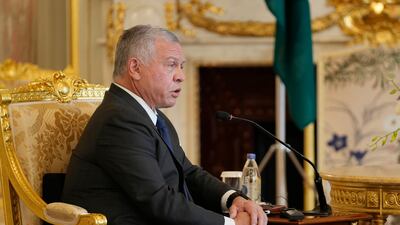Jordan's King Abdullah introduced important reforms for the kingdom's upper house of parliament on Sunday, bringing in more political and financial expertise to the consultative assembly.
All significant powers in Jordan lie with the king. The government is tasked with administrating his will, while the lower house, which is elected, overwhelmingly comprises pro-government deputies.
A royal decree published by official media named the new, 65-member upper house, called the senate. The king retained Faisal Al Fayez as its head.
According to counts by pro-government media, around half of the new senate comprises new members and it now has 26 former ministers, as opposed to 17 ex-ministers in the last senate.
Ziad Fariz, an ex-central bank governor has become a member of the assembly, as well as Suhair Al Ali, and Maha Bahou, two former bankers.
The change to the senate comes days after King Abdullah replaced eight ministers, in the fifth reshuffle to the government since it was appointed two years ago.
Jordan's economy has been stagnant for over a decade and unemployment is officially at a record high of 23 per cent. The economy grew 2 per cent last year, compared with a 2 per cent contraction in 2020.
The authorities announced in the second half of this year plans to jump start economic growth and attract investment, and reform what is widely seen as a bloated bureaucracy.

